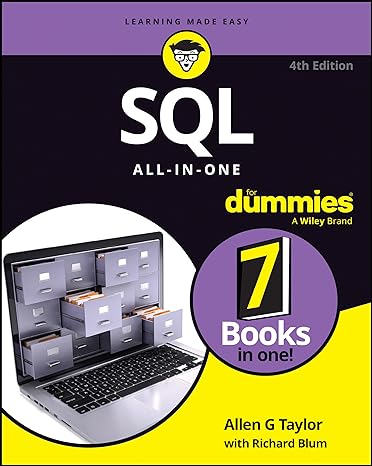Question
This is the code for Lab 1. #include #include #include using namespace std; string GetToken(); void error(int); int main() { string token; cout < <
This is the code for Lab 1.
#include
#include
#include
using namespace std;
string GetToken();
void error(int);
int main() {
string token;
cout << "Please enter a declaration in format "
<< " [= number];" << endl;
cout << "The following are the tokens in the input:" << endl;
token = GetToken();
while (token != "") {
cout << token << endl;
token = GetToken();
}
cout << "Done!" << endl;
cin.get();
return 0;
}
string GetToken() {
locale loc;
string token;
string error;
bool goToken = true;
char ch;
// Write the code here. Read the next token and store it in variable "token".
// The token must be read character by character. Use the regular expression
// defined above to extract tokens from the input.
//
// To read a character from keyboard, use:
//
// cin.get(ch);
//
// where "ch" is a character variable.
while (goToken == true)
{
cin.get(ch);
while (ch == ' ')
{
cin.get(ch);
}
//token = ch;
if (isdigit(ch))
{
//token = token + ch;
while (isdigit(ch))
{
//cout <<"digit"<< endl;
token = token + ch;
//cout << token << endl;
cin.get(ch);
//deal with decimals
if (ch == '.')
{
token = token + ch;
cin.get(ch);
}
//deals with semicolon
if (ch == ';')
{
token = token + ' ' + ch;
cin.get(ch);
//goToken = false;
//break;
}
if (ch == '#')
{
//error = token;
token = token + ' ' + ch + ':' + " Error: Unrecognizable token";
}
//GetToken();
//goToken= false;
}
//token = token + ch;
//cout << token << endl;
//cout << "token" << endl;
goToken = false;
}
else
{
token = token + ch;
//type
if (token == "i")
{
goToken = true;
}
else if (token == "in")
{
goToken = true;
}
else if (token == "int")
{
goToken = false;
}
else if (token == "f")
{
goToken = true;
}
else if (token == "fl")
{
goToken = true;
}
else if (token == "flo")
{
goToken = true;
}
else if (token == "floa")
{
goToken = true;
}
else if (token == "float")
{
goToken = false;
}
//variable
else if (token == "A" || token == "B" || token == "C" || token == "D" || token == "E")
{
goToken = false;
}
//equal
else if (token == "=")
{
goToken = false;
}
//semicolon
else if (token == ";")
{
goToken = false;
}
//enter
else if (token == " ")
{
token = "";
goToken = false;
}
else
{
//error = token;
token = token + ':' + " Error: Unrecognizable token";
goToken = false;
}
}
}
return token;
}
void error(int)
{
}
I need help with this exercise (Below) that has to do with the code of Lab 1. (Above)
// A simple parser for C/C++-style variable declarations. // THe grammar is as follows: // //::= ; | = ; // ::= int | float // ::= A | B | C | D | E // ::= | // ::= | // ::= 0 | 1 | 2 | 3 | 4 | 5 | 6 | 7 | 8 | 9 // ::= . // // Input is entered at the keyboard. // If the input is correct, the program should print // "no error found", otherwise, it should print the type // of error and terminate its execution. There are four // possible errors: // // "unrecognizable type" // "illegal variable name" // "unexpected number" // "; expected" // // Error message is printed out by calling function // "error". An error code ranging from 0 to 4 can be // passed as an argument to the function indicating what // message is to be printed. The mapping from the error // code to the message can be found by looking at the // definition of function "error". // // The following are some sample input and the response // from the program: // // Please enter a declaration in format [= number] ; // int A; // no error found // // Please enter a declaration in format [= number] ; // int a; // illegal variable name // // Please enter a declaration in format [= number] ; // short B; // unrecognizable type // // Please enter a declaration in format [= number] ; // float C = 0.5; // no error found // // Please enter a declaration in format [= number] ; // int A = 10, // unexpected token // // Other sample input: // float B; // float C=0.2; // short D; // float F; // // The last two sample inputs should generate errors because "short" and "F" are // not acceptable tokens. #include #include using namespace std; string GetToken(); void error(int); int main() { string token; cout << "Please enter a declaration in format " << " [= number] ;" << endl; token = GetToken(); // Write the code here error(0); return 0; } string GetToken() { // Use the Gettoken function you have designed in Lab 1. } void error(int code) { switch (code) { case 0: cout << "no errors found" << endl; break; case 1: cout << "unrecognizable type" << endl; break; case 2: cout << "illegal variable name" << endl; break; case 3: cout << "unexpected number" << endl; break; case 4: cout << "; expected" << endl; } return; }
Step by Step Solution
There are 3 Steps involved in it
Step: 1

Get Instant Access to Expert-Tailored Solutions
See step-by-step solutions with expert insights and AI powered tools for academic success
Step: 2

Step: 3

Ace Your Homework with AI
Get the answers you need in no time with our AI-driven, step-by-step assistance
Get Started


